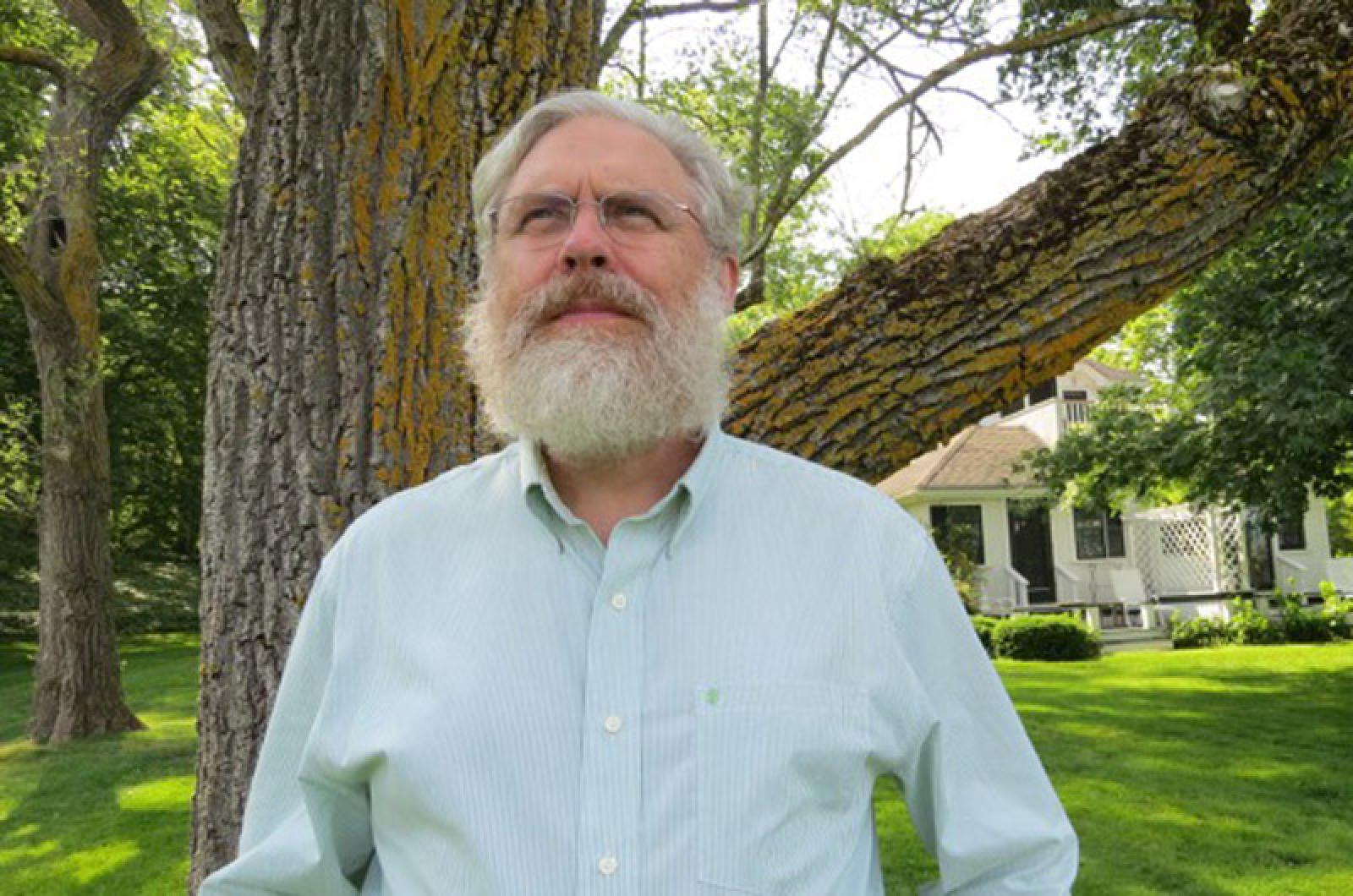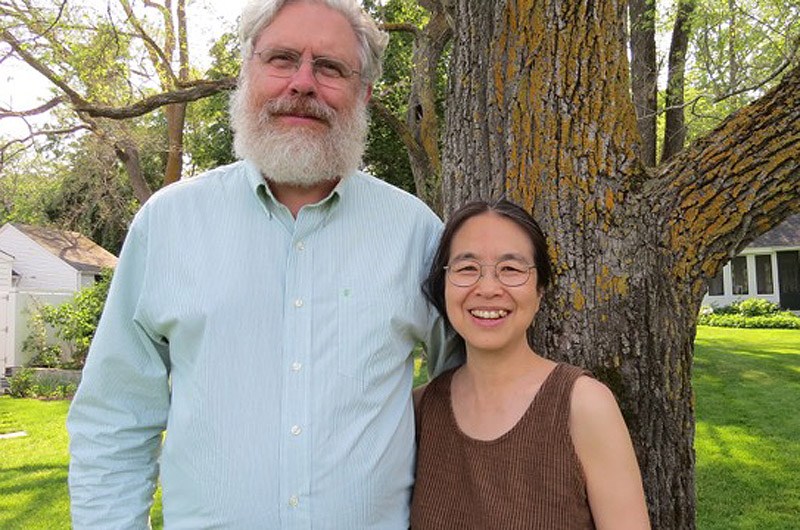Following Dr. George Church’s discussion recently on gene therapy, age reversal and the regenesis of extinct species, one woman in the crowd raised her hand and asked, “What kind of a scientist are you?”
“I’m a bit difficult to pigeon hole,” said Mr. Church over a chorus of laughter. “I think the definition would be interdisciplinary. Or as some of my colleagues call it, anti-disciplinary.”
Mr. Church is recognized as an expert worldwide on topics ranging from synthetic biology to the human genome. His work has been reported on in outlets from The Wall Street Journal to The Colbert Report, and his research into such topics as gene manipulation and bringing back former extinct species such as the woolly mammoth has drawn praise along with controversy over his career.
“George is kind of a 21st century Thomas Edison of biology,” said event organizer Betty Burton in her introduction.
A “rock star” of DNA and molecular genetics, Mr. Church holds degrees from both Duke University and Harvard University where he earned his Ph.D. in biochemistry and molecular biology in 1984. Currently he is a professor of genetics at Harvard Medical School, and teaches at both Harvard and MIT as a health sciences and technology professor.
The event last Wednesday was held by the Vineyard Haven Library at the Katharine Cornell Theatre to provide an opportunity for Mr. Church to discuss some of his more recent work with the human genome, and the possible medical applications of such research. Mr. Church talked about the uses that genetic engineering could provide, ranging from age reversal to the elimination of malaria from mosquitoes (and in turn their human victims). In a topic especially dear to Islanders, he also addressed how genetic modification could help fight Lyme disease by inoculating ticks.
“If we can think of a way to break the cycle, then it becomes extinct,” said Mr. Church. “And we do that by hitting the disease vector, the tick.”
At the onset of his lecture, Mr. Church demonstrated the potential of human genetic sequencing by presenting anecdotes from three medical cases where assessing each patient’s genetic code was essential to the treatment. One such case, that of the Beery twins, focused on a set of twins who had first been diagnosed with cerebral palsy, but after genetic testing were discovered to have a chemical deficiency embedded in their genetics. The solution was then simple: give them a supplement to kick start their hormones.
But Mr. Church was quick to warn against viewing genetics in such simplistic terms.
“Don’t come away from this thinking all the answers are simple,” said Mr. Church. “Most of them are very complicated.”
Indeed, as the talk continued, Mr. Church delved into increasingly complex topics relating to genetic splicing and advanced genetic engineering. Eventually, a woman in the back row turned to a friend and said loudly, “Can anyone understand this?”
Yet Mr. Church was always careful to bring the talk back to more familiar territory, attempting to integrate humor with concrete applications of what he was discussing.
“How many people have seen the movie The Graduate?” he asked, at the start of an explanation of using CRISPR technology to alter a genome. “Well, let me tell you one word: CRISPR.”
The idea is to insert a “selfish” gene that can in turn spread rapidly through offspring, providing a benefit among an entire population. Mr. Church brought up the possible applications of this genetic modification in everything from curing HIV to the potential for bringing back extinct species through altering preexisting animal DNA. This last topic has proved to be one of the most controversial subjects Dr. Church has looked into, and provided fodder for most of the audience questions afterwards.
“It’s very exciting to hear about the ‘can do’s,’” said one Vineyard mother. “But I wonder about the ‘shoulds’ sometimes.”
Mr. Church admitted that the topic was sensitive and required careful consideration. But he pointed out that his labs use bioethicists and philosophers during their research. He also cited the regulations by the FDA and the EPA as important safety monitors, along with the fact that his lab has worked with one ethicist in particular since 2006.
But while the pace of Mr. Church’s research could at first seem dangerous, he is quick to point out that all of the applications and technology he mentioned will take time, and that is probably for the best.
“Part of the reason I’m talking about things that are not a minute, that are maybe five or 10 years away, is so that we have time to have public discussion like this from people who might think of a risk that we have not thought of,” said Mr. Church. “Scientists should not be arrogant.”
As the talk concluded, the general feeling of the crowd was a sense of awe at just how far things could proceed. The topics of age reversal and Alzheimer’s proved to be particularly fascinating to those present.
“Just think,” said one elderly woman to her husband on their way out. “You might never be able to get rid of me!”









Comments (1)
Comments
Comment policy »